Let’s talk about magic.
Many of us disappear into novels because we want to be taken someplace new. For some of us, that might be Papua New Guinea in the 1920s, for others, we need something more extravagant. We need new worlds; we need magic. The trick is to create a magic system that is compelling, logical (to an extent!), and well executed. No small task. But here’s a couple of rules—not the hard and fast kind, the soft and slow kind—that might help.
1. Know how the magic works
Much of writing a novel is like an iceberg. Just go with me. Most likely you know a whole lot more about your characters than you reveal in your novel. There’s a backstory, a childhood, a history beneath the surface that informs the small bit of character that we do see.
Well, the same is true for magic systems. Whether or not you explain in detail how the magic in your world works, it’s safe to say that it is beneficial if you, as the author, know its ins and outs. This will help you keep continuity in your story and prevent contradiction when using your magic (in the story—not real life—put your wands down).
2. Use it right
Now to put the magic into practice. I talk about this a bit in my blog on world-building. The idea is, and it’s simple: if the magic doesn’t do anything to further character or plot, it’s not worth including in your novel.
If magic doesn’t further character or plot, it’s not worth including in your novel.Click To TweetWhat this means is, the most compelling systems of magic are intricately tied to character, conflict, or are used to move the story forward in one way or another. So if your character is a werewolf, then you need to show, for example, how he struggles with being a werewolf, how he can’t get close to anyone because he’s a werewolf, or how he’s trying to find a cure for his condition. He can’t just be a werewolf because werewolfs are cool. When deciding if your magic is worth including, ask yourself these four questions.
- Does the magic affect your character on an emotional level?
- Does the magic cause conflict?
- Would the story be the same without the magic?
- Would the characters be the same without the magic?
If your magic doesn’t make a difference to the story or the characters, then I’m afraid it needs to be burned away in the fires of editing. If you want to take this a step further—brace yourself, this isn’t fun—then even if the answer is “yes it influences character” and “yes it moves the plot forward,” ask yourself how much. And be ruthless. It may very well be that while the magic does serve a purpose, it doesn’t serve enough of a purpose. You’ve heard the advice that if you can do anything else other than write, then do it, writing is an arduous process full of failure and sweat. Well, the same might be true for working with magic, if your story can have the same impact without magic, you might want to give that a try first.
3. Know your audience
I’m not a big proponent of writing to a specific audience, or letting your targeted audience change the way you write something. I think you need to write the best book you can and go from there. However, knowing the style of novel you want to write and knowing whether or not you’re writing an adult novel, a young adult novel, or a middle grade novel can help you when creating and explaining (or not explaining) your magic.
Middle Grade – Young Adult
When writing for kids, you might not need as much of an explanation for your magic system. Kids have an extraordinary aptitude for imagination and probably aren’t too jaded to follow you into magical worlds. But don’t let that fool you, kids are smart, they can handle a lot, so you still have to be consistent with how you use your magic, and you still have to deliver it in a compelling way.
Alternatively, if you want to be clear about how the magic works by providing rules, specific guidelines, etc., just be careful to not make things too complicated. If kids have to remember a list of rules or if rules contradict each other, forget it. Kids will get bored of trying to figure it all out. For that matter, so will adults!
Adult
When reviewing the novel The Magicians, the New York Times compared it to going to a rave in your 40s: “Sounds like fun, but aren’t we a little old for this?” And therein lies the problem of writing fantasy for an adult audience. There’s a stigma that adults are too old for a little magic.
There’s a stigma that adults are too old for a little magic in writing. Do you agree?Click To TweetLet’s separate the adult audience into two categories: 1.) adult readers that have trouble buying in to a story with magic, and 2.) adult readers that are fans of the fantasy genre. The first group of people are hard to win over and will most likely need a magic system that is subtle. They’re going to want a story that first explores character with maybe a touch of magic in the background, or perhaps magic that is used simply to reveal character. If your story straddles that line between literary and fantasy, you might be able to capture this audience.
The second group of readers, believe it or not, may be just as hard to win over. These avid fantasy fans have most likely been reading fantasy for a long time and won’t be impressed with the same magic system they’ve seen time and time again. To satisfy this audience, you need either a magic system that is—at least somewhat—new, a magic system that is executed in new ways, or characters and a story so good that they won’t mind a type of magic that they’ve seen before.
4. Know what you want to reveal
If we go back to the first rule, and we pretend that the magic system is an iceberg, the question is, how much do you leave above the surface? This is entirely up to you, and can be done in different ways depending on the magic. Different types of magic are more conducive to being vague than others.
For example, in Patrick Rothfuss’ Kingkiller Chronicles, the magic is deeply rooted in a type of science and therefore benefits from a detailed explanation. On the other hand, in novels like The Lord of the Rings, the magic is embedded into the world and is left unexplained in order to add to the mystery and implied history of middle earth (why does the ring make people disappear?). And then there’s the middle ground. In Susanna Clarke’s Jonathan Strange and Mr Norrell, we know that magicians use magic through spells and extensive study, yet how exactly these spells work is, in part, somewhat enigmatic. Depending on the type of magic you use in your book, how much you reveal can be significant for the type of feel you’re going for—whether it’s an intricate system of hard and fast rules, or a mysterious power no one knows much about. Either way, having a plan of what you want to reveal before going in will help you develop your style.
5. In the end, write your story
Overall, these are excellent things to think about when writing fantasy. Coming into your novel with a game plan for what you want your magic to look like and do can help you get started. However, as I said before, these rules are not laws by any means. Sometimes, the best way to figure out your magic system, your audience, and the size and shape of your iceberg is to simply start writing.
I’d love to hear about the different types of magic systems you’ve encountered in both your writing and your reading. What has worked? What hasn’t worked?
Writing Fantasy Fiction: How To Make The Magic WorkClick To Tweet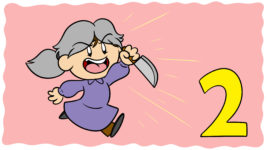
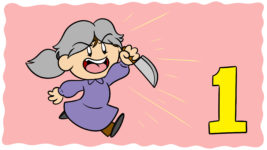
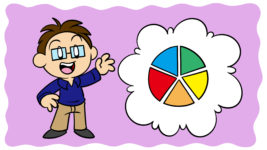
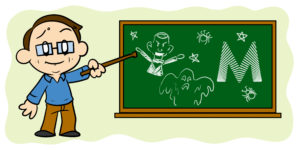
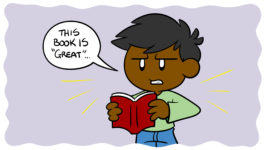
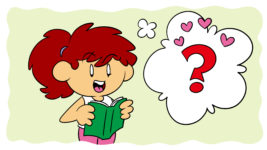
9 thoughts on “Writing Fantasy Fiction: How To Make The Magic Work”
Great points, Tyrell. In my War of Whispers series, I opted for the “less is more” approach to magic. I was more interested in developing the characters and how they reacted to magic, both good and bad, than in spelling out the history and restrictions of the system.
The magic is important, or else it wouldn’t be fantasy, but I wanted the reader to feel the tension during conflict and not think, “Well, she has magic and can get out of this anyway, so why worry?”
Thanks man! And yeah, it’s no fun when the magic becomes a plot crutch or a get out of jail free card for your characters. In that way, I guess magic used well can create tension, while magic used poorly destroys it.
A really interesting article it has helped me with if the magic in my sci fi story is needed.
In my story Arcainuim (magic) was though to be just a story possibly one person in universe has it (the antagonist). Theres a point when something very emotional happens to the main character and he loses himself thats and finds out that he is descendent from ancient kings and the magic is in his blood but it comes at a price every time he uses it its harder to control the beast he becomes.
The magic in my book is actually a lot like that, with the “beast he becomes” thing.
In my book Dragonkin, Only children of the Elemental Dragons can use magic. If they use too much, then they slowly become a beast, or they are corrupted. With the beast thing… Picture a glowing, giant Pit Fiend in a color of a magic user’s color, with no wings. Oh also the size of a Downtown Detroit building.
Tanis is especially affected by it. Since she’s the daughter of Somnori, the Ruler of the Dragons and the Dream Lord, she has sort of a split-personality disorder, where she has her own regrets, bad emotions, and bad choices squashed into a living being that speaks in her brain, getting her closer and closer to her Dragon-Beast form.
I’m thinking that every book is in a different perspective, and in the final book to the first arc, she turns INTO her dragon-beast form, and one of the characters tries to heal her.
I never liked it when magic in a fantasy story was set up so that they discover they have those posers it felt like an easy cop-out because anytime there was a problem, boom all the hero had to do was use the magic.
I’ve set mine up so that magic is normal to all the characters and that over use of any kind comes with a price. For instance, if my main character using the hate spell too often the spirits that grant it will take away from her life force. If she continues to push it it could kill her.
I’ve spotted a big problem with the book I need to find some were in the first few chapters an area where they think/talk about what’s happened and reflect on things. It doesn’t have to be very long but I realy think that it’s important they they slow down and take everything in for a bit. Other wise the pace just feels way to fast. Ugg.
So many articles I read when just starting writing kept going on about how you have to start things off with a bang, but not enouh state how it’s a bad idea to keep doing that without a break. /facepalm, silly me.
In regards to character development, do you have any advice as to how one might use magic to further this? I fully intend to move forward writing high fantasy resultingly I tend to include a system of magic but I appreciate the ideal of the first commentator in that “less is more” when it comes to the actual execution.
This section was extremely helpful. My only bad thing about it is that it didn’t have any section on writing about the COST of magic. After all, magic isn’t a thing we have in the real world, and not EVERYONE should be able to use it.
In Wings of Fire, they have Animus magic, which is extremely powerful, but it is powered directly from your soul. Basically, if you use too much, then you either end up homicidally insane, dead, disappeared, or turned to stone. (The last one was actually done by choice, poor StoneMover.
However, in Harry Potter, its basically:
If you get a wand, then YAY YOU GET UNLIMITED MAGIC AND STUFF!
There’s no cost to it at all, and I find that ridiculous.
I am needing a bit of help with coming up with a believable cost to magic, this section didn’t help much with that point, but it helped with everything else.
Well, you could ask yourself where does your magic come from? How do your characters get the power to use magic? What happens when the rules are broken/the spirits go away/the magic is exhausted? Do the characters just look silly, waving their hands and chanting to no effect?
Some examples:
The Bartimaeus Trilogy (Jonathan Stroud) – Magic comes from Demons, who are constantly looking for ways to kill you. You have a complex ritual to summon them, and any mistake you make when preparing it lets the Demon kill you. Also, if you step out of your circle or it hears your name.
Secrets of the Immortal Nicholas Flammel – Using magic makes you tired. Using too much can make you pass out or even spontaneously combust.
Artemis Fowl (Eion Colfer) – Only fairies can do magic. They have a limited supply, which runs out as they do spells. They must follow certain rules, or they will lose their magic. To replenish their magic, a fairy must plant a special acorn in the earth.
Thanks for making this article. Been struggling for years on where to start and this helped me figure out where I want to go. I’m excited write again and I’m looking forward to read other articles that you wrote to help me with my writing process. Thank you again.